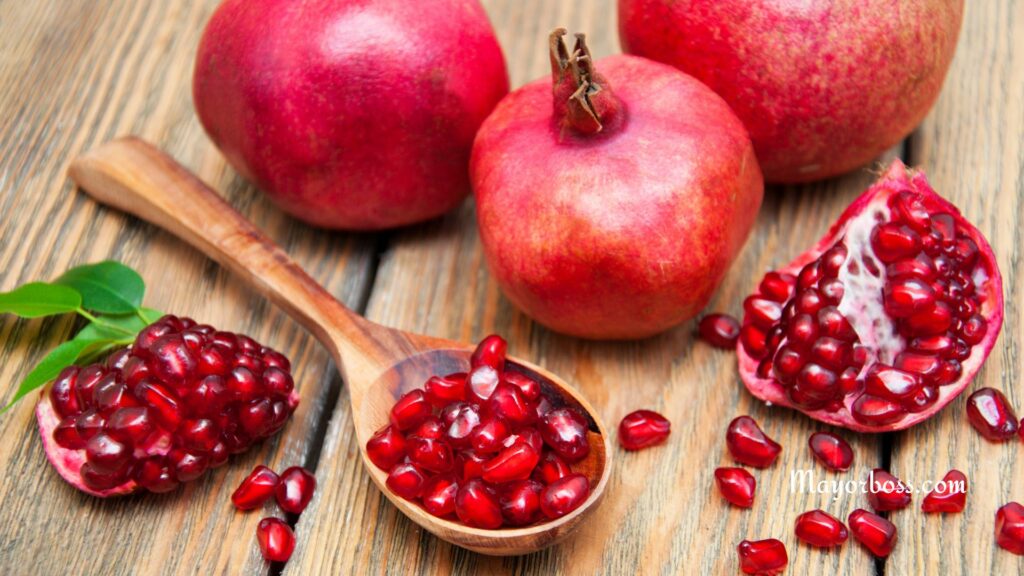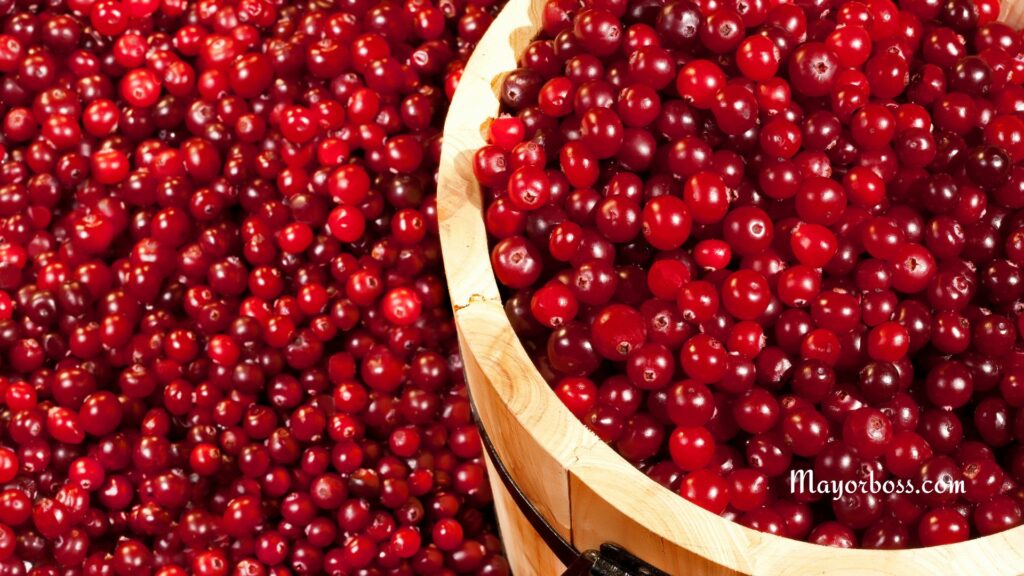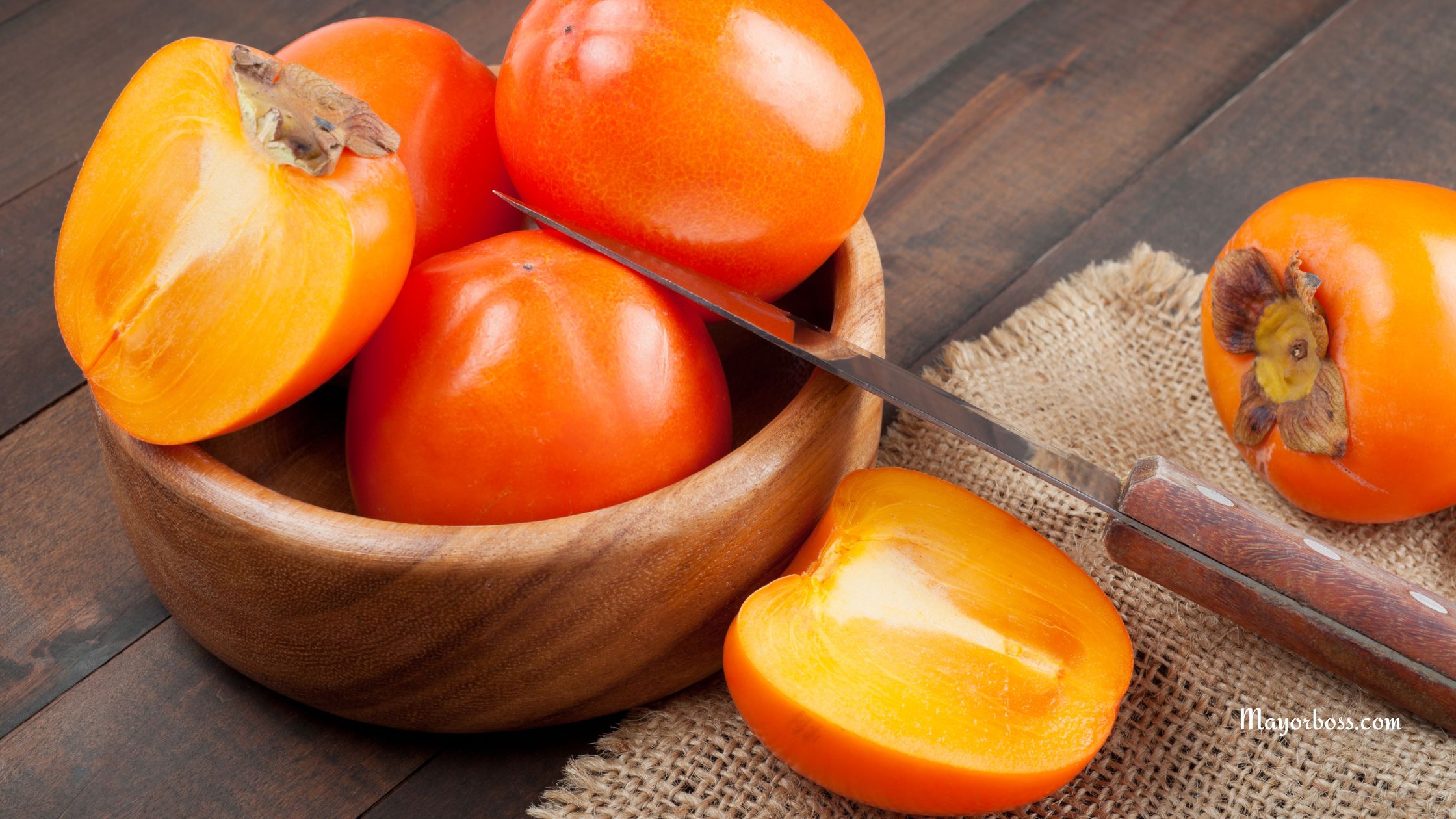30 Fruits That Are Super Nutritious
Eating various fruits is a delicious and convenient way to boost your overall health. Packed with essential nutrients, fruits can help ward off chronic diseases like type 2 diabetes, heart disease, Alzheimer’s, Parkinson’s, and certain forms of cancer. In this article, you’ll learn 30 fruits that are super nutritious.
1. Lychee
Lychee is a good source of vitamin C, potassium, and beneficial plant compounds, including carotenoids, polyphenols, and anthocyanins. Research suggests that consuming lychee may help improve heart health, lower inflammation, and promote a healthy immune system.
2. Bananas
Bananas are an incredible source of potassium, vitamin B6, and vitamin C. They’re also high in resistant starch, which promotes gut health and may protect against colon cancer. In addition, bananas can help regulate blood pressure and support heart health.
3. Blueberries
These tiny berries are packed with antioxidants, fiber, and vitamin C. Blueberries contain high plant polyphenols called anthocyanins, which have been shown to protect against high blood pressure, heart disease, type 2 diabetes, and cognitive decline.
4. Strawberries
Strawberries are a superior source of vitamin C, manganese, and folate. They also contain numerous bioactive compounds, such as anthocyanins, flavonoids, phenolic acids, lignans, and tannins, which can help decrease inflammation and protect you against chronic diseases.
5. Kiwifruit
Kiwis are rich in vitamin C, vitamin K, vitamin E, and potassium. They also contain a protein-digesting enzyme called actinidin, which can help improve digestion. In fact, people use Kiwi to treat mild constipation.
In addition, studies have shown that consuming kiwifruit can help lower blood pressure and decrease the likelihood of heart disease. Furthermore, due to the high content of lutein, zeaxanthin, and beta carotene, kiwis may help protect against age-related vision loss.
6. Pineapple
Pineapple is packed with vitamin C, manganese, and bromelain, an enzyme that assists in breaking down proteins and has anti-inflammatory properties.
According to studies, consuming pineapple can help support a healthy immune system, promotes heart health, and aid digestion.
7. Papaya
Papaya is known for its high vitamin C, vitamin A, folate, and potassium. Beyond this, papaya also contains the enzyme papain, which can help digestion and reduce inflammation.
Some studies suggest that papaya may have anticancer properties and support heart health.
8. Mango
Mangos are high in vitamin C, vitamin A, and antioxidants like beta-carotene. They also contain a unique antioxidant called mangiferin, which has been shown to have anti-inflammatory and anticancer properties.
Mangos may help improve heart health, maintain healthy skin, and support a healthy immune system.
9. Cherries
Cherries are packed with vitamin C, potassium, and antioxidants, including anthocyanins and quercetin. These compounds have been linked to a reduced risk of heart disease, type 2 diabetes, and certain types of cancer.
10. Watermelon
Watermelon is high in vitamins A and C, potassium, and the antioxidant lycopene. Studies show that lycopene can help protect against skin photodamage, heart disease, and certain types of cancer. Watermelon also has a high water content, making it a hydrating and refreshing snack.
11. Avocado
Avocados are rich in healthy monounsaturated fats, fiber, potassium, and vitamins B6, C, E, and K. They also contain plant sterols, which research suggests help lower cholesterol levels.
In particular, scientific evidence indicates that consuming avocados twice a week may regulate blood sugar, lower blood pressure, and aid weight loss.
12. Grapes
Grapes are a good source of vitamin C, vitamin K, and antioxidants, particularly resveratrol, which is found in the skin of red grapes. Resveratrol has been shown to protect against type 2 diabetes, heart disease, and cognitive decline.
13. Pomegranate

Pomegranates are super nutritious. Loaded with potent antioxidants like punicalagins, reducing inflammation and oxidative stress. They provide vitamin C, bolstering immune function, and potassium, promoting heart health.
Rich in fiber, pomegranates aid digestion and support weight management. Additionally, their anti-cancer properties and benefits for brain health make them a standout superfood.
14. Raspberries
Raspberries are rich in powerful antioxidants, fiber, and vitamins, promoting overall health. They help reduce inflammation, support heart health, and manage blood sugar levels.
Raspberries also boost the immune system, aid digestion, and contribute to healthy skin. Their anti-cancer properties protect against cell damage and reduce the risk of chronic diseases.
15. Blackberries
Similarly to raspberries, blackberries are high in dietary fiber and numerous micronutrients, such as vitamin C, vitamin K, manganese, and magnesium.
They also contain a range of antioxidants, including anthocyanins, which may reduce cholesterol, and high blood pressure, lower inflammation, and protection against cellular damage.
16. Oranges
Oranges are super nutritious due to their high vitamin C content, which boosts immunity and promotes collagen production. They also contain fiber, aiding digestion and heart health.
Furthermore, oranges possess plant compounds called flavonoids, which have been shown to protect cells from damage.
Moreover, potassium and folate in oranges support muscle function and prenatal health, making them an ideal fruit for overall wellness.
17. Peaches
Peaches are highly nutritious, packing plenty of vitamins A, C, E, and K, potassium, and antioxidants like beta-carotene. They also contain polyphenols, which have been shown to prevent heart disease and type 2 diabetes. Besides, due to their natural laxative properties, peaches are used to ease constipation.
18. Plums
Plums are packed with vitamins A and C, potassium, and antioxidants, including anthocyanins and phenolic compounds. These compounds have been linked to a reduced risk of heart disease, type 2 diabetes, and cancer.
19. Apricots
Apricots are an excellent source of vitamin A, vitamin C, and potassium. In particular, they’re high in antioxidants like beta-carotene and lutein, which can help protect against age-related macular degeneration and other chronic diseases.
20. Cranberries

Cranberries are particularly high in vitamin C, fiber, and antioxidants like proanthocyanidins. Research indicates that consuming cranberries can help prevent urinary tract infections and support heart health.
21. Pears
Pears are a good source of fiber, vitamin C, magnesium, and potassium. They are also loaded with powerful antioxidants like quercetin, which study suggests help reduce inflammation and protect against osteoporosis, lung cancer, and cardiovascular disease.
22. Cantaloupe
Cantaloupe, a nutrient-rich fruit, offers countless health benefits. It is a low-calorie, hydrating source of vitamins A, C, and potassium. Vitamin A supports eye health and immune function, while vitamin C boosts collagen production and aids in wound healing. Potassium promotes heart health and helps maintain electrolyte balance. In addition, cantaloupe fiber content aids digestion and weight management.
23. Guava
Guava is a nutrient-rich fruit that benefits your body in multiple ways. It’s filled with lycopene, vitamins C, A, B9, and K, and dietary fiber. These nutrients boost immunity, improve skin health and aid digestion. Additionally, guava contains potassium and magnesium, which contribute to heart health and regulate blood pressure. Moreover, the low glycemic index also makes it suitable for diabetics.
24. Grapefruit
Rich in vitamins C and A, naringenin, and lycopene, grapefruit may strengthen your immune system and supports skin health. It also contains antioxidants that fight free radicals and reduce inflammation.
Plus, grapefruit aids weight management due to its low calorie and high fiber content. Furthermore, it promotes heart health, may help lower cholesterol, and could improve insulin resistance, making it beneficial for diabetics.
25. Tangerines
Like all citrus fruits, tangerines are considered a superfood due to their impressive nutrient profile and health benefits. Rich in vitamin C, fiber, potassium, and antioxidants like flavonoids, they boost immune function, promote heart health, and protect cells from oxidative damage.
Tangerines also support healthy skin, aid digestion, and are low in calories, making them an ideal choice for a nutrient-dense and flavorful snack.
26. Figs
Figs are nutrient-dense fruits offering numerous health benefits. They contain fiber, aiding digestion and promoting regular bowel movements. Rich in antioxidants, figs combat free radicals, reducing inflammation and aging effects.
Packed with vitamins and minerals, they support bone health, lower blood pressure, and maintain blood sugar levels. Furthermore, figs are a natural aphrodisiac, potentially boosting fertility and sexual health.
27. Passion Fruit
Passion fruit is a superfood because of its high nutritional content. It’s filled with vitamins A and C, fiber, antioxidants, and essential minerals like potassium and magnesium. These nutrients boost immune function, support heart health, aid digestion, and promote healthy skin.
Its low glycemic index also makes it suitable for diabetics. Some research even suggests that passion fruit may help lower your blood sugar.
28. Apples
Apples are a classic fruit loaded with both soluble and insoluble fiber, vitamin C, and a variety of plant polyphenols that act as antioxidants. Multiple studies claim that eating apples can help lower the risk of heart disease, obesity, diabetes, stroke, and cancer.
29. Currants
Currants are super nutritious due to their rich content of antioxidants, vitamins, and minerals. They provide fiber, vitamin C, and potassium, boosting the immune system and aiding digestion. Anthocyanins, found in currants, possess anti-inflammatory and anticancer properties. Their low glycemic index makes them a healthy option for diabetics, while their iron content combats anemia.
30. Nectarines
Nectarines offer numerous health benefits due to their rich nutrient profile. They’re low in calories, high in vitamins A and C, and provide dietary fiber. These nutrients support immune function, skin health, and digestion.
Nectarines also contain potassium, which aids in maintaining electrolyte balance and heart health. Additionally, their antioxidants help combat free radicals, reducing the risk of chronic diseases.
Further Reading: 6 Healthiest Vegetables to Eat






